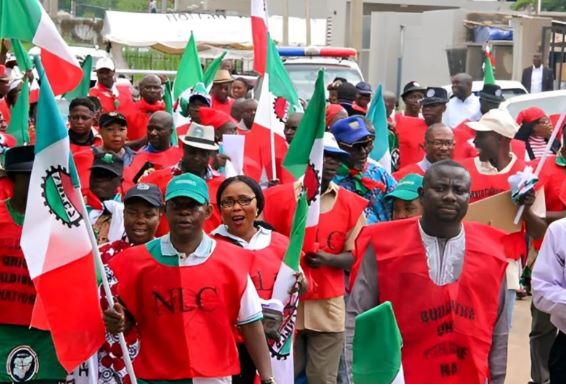
Builders in Nigeria have opposed the planned strike by the Nigerian Labour Congress.
The NLC had given the Federal Government a 21-day ultimatum since September 1.
In separate interviews with The PUNCH, the builders noted they had lost faith in the labour union.
The Treasurer of the Nigerian Institute of Building, Ayotunde Philips, said Nigerians no longer believe in the NLC and its industrial actions.
He said, “People have realised over time that once NLC calls for a strike as soon as their leadership gets settlement from the government, they will no longer pursue the course of an average worker. See what happened during the COVID-19. How many workers did NLC support with palliatives, especially the vulnerable ones?
“Many NLC leaders ride in big SUVs and own mansions in choice cities like Abuja, Lagos, Port Harcourt and abroad. Only time will tell if they are only clout-chasing because Nigerians have given up on them. That is why the compliance to the strike is very low.”
The NLC on September 1 after a two-day warning strike issued a 21-day ultimatum to the Federal Government over the poor state of workers’ welfare, worsened by the removal of fuel subsidy and floating of the naira.
The NLC warned of the possibility of an indefinite shutdown of the economy within 14 working days or 21 days after the warning strike, if the government did not take steps to address the hardship experienced across the country.
The NLC President, Joe Ajaero, recently said, “NEC in session of NLC resolved to embark on a total and indefinite shutdown of the nation within 14 working days or 21 days from today until steps are taken by the government to address the excruciating mass suffering and the impoverishment experienced around the country.”
Also, the President of the Real Estate Developers Association of Nigeria, Dr Aliyu Wamakko, said Nigerians needed to be patient, adding that the association was not going on strike.
He said, “Subsidy was removed during Buhari’s administration, but implemented during Tinubu’s administration. Even before the subsidy was removed, some people were eating that money, and they were talking about going on strike to cause another havoc in the system.
“Let us be patient and try to support the government to see what can be done.”
In the same vein, the President of the Nigerian Institute of Town Planners, Nathaniel Atebije, said negotiation was the best way to go.
He said, “The amount of productive time we lose in the strike process is much more than what we gain. Unfortunately, it seems the only language the government understands is strike, but it is the negotiation table we would still come back to. Hence, it is better to not worsen the sector.”
An estate surveyor, Alatise Badmus, said “The whole strike idea is clout chasing and no one is taking them seriously. I may not have much to say on this, but I think it is that the so-called NLC are not for the people.
“I don’t think any Nigerian takes those folks seriously now even the civil servants they said they are fighting for. It applies to all and sundry. The private sector is a major player in the built environment and I don’t think any reasonable firm will close up to join a strike. The best they can do for their staff is to give them incentives to cushion the effect of the high cost of transportation.”
Meanwhile, the Executive Secretary of the Association of Housing Corporation of Nigeria, Toye Eniola, said the government should be sincere in fulfilling its promises.
“Everybody is fed up and the strike does not seem to have much effect, because they know that people are on strike for legitimate reasons. Every man is for himself. It is an unfortunate situation because the government is not sincere, and the people going on strike are not sincere.
“People are indifferent because if they join the strike or not, it would not put any food on their tables.”





